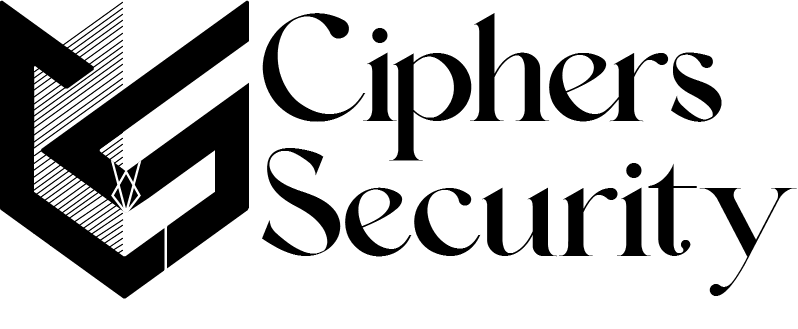Hello, everyone Lucifer here for introducing you guys to cyber laws and acts available in different countries.
Cyber Law is very necessary for governing and regulating the use of the Internet and other electronic communication channel.
Cyber laws mainly focus on protecting individuals and organizations from any type of cyber attacks, cyber crime and cyberbullying, and other type of online threats.
It is very useful in ensuring that any person can use the internet and any other electronic communication devices safely and securely.
DMCA Act

DMCA Digital Millennium Copyright Act is an American copyright law that was established in 1998 to address copyright infringement on the internet by providing copyright holders with a means for protecting their online content.
The DMCA establishes legal prohibitions against getting beyond the technological safeguards used by copyright owners to protect their works as well as against the deletion or modification of copyright management data in order to carry out US treaty obligations.
The DMCA Act contains five titles in it for protecting user digital content that is:-
- Title I: WIPO Treaty Implementation
- Title II: Online Copyright Infringement Liability Limitation
- Title III: Computer Maintenance Or Repair
- Title IV: Miscellaneous Provision
- Title V: Protection of Certain Original Design
Title I: WIPO Treaty Implementation
The WIPO accords are implemented by Title I. First, it makes a few technical changes to US law so that the relevant allusions and linkages to the treaties are there.
Second, it adds civil remedies and criminal penalties for violating two new prohibitions in Title 17 of the U.S. Code, one on evading technological safeguards used by copyright owners to safeguard their works and the other on tampering with copyright management data.
Title II: Online Copyright Infringement Liability Limitation
Title II of the DMCA adds a new section 512 to the Copyright Act to create four new limitations on liability for copyright infringement by online service providers. A service provider bases these limitations on the following four categories of conduct:
- Transitory communications
- System Caching
- The user-directed storage of information on systems or networks
- Information Location Tools
Title III: Computer Maintenance Or Repair
Owners of copies of programs are permitted to reproduce or modify them as needed to use them with computers under Title III of the DMCA.
The modification allows a computer’s owner or lessee to make copies of computer programs or to give permission for others to do so while they maintain or fix the machine.
Title IV: Miscellaneous Provision

There are six supplemental provisions in Title IV.
The first provision announces the clarification of the copyright office’s authority; the second grants an exemption for the creation of “ephemeral recordings”;
the third encourages distance learning; the fourth offers an exemption for nonprofit libraries and archives;
the fifth permits webcasting amendments to the digital performance right in sound recordings; and, finally, the sixth provision addresses concerns about the skills of screenwriters, directors, and producers.
Title V: Protection of Certain Original Design
The VHDPA, or Vessel Hull Design Protection Act, is found in Title V of the DMCA. This law establishes a new approach for safeguarding the original designs of specific practical items that give them a pleasing or distinctive appearance.
For the purposes of the VHDPA, “useful articles” are only defined as the hulls of ships that are no longer than 200 feet in length, including the decks.
FISMA Act

FISMA Short of Federal Information Security Management Act came into action in 2002 for producing several key security standards and guidelines required by congressional legislation.
A thorough framework is provided by the FISMA for guaranteeing the efficacy of information security controls over information resources supporting government activities and assets.
Each federal agency is required to create, record, and implement an agency-wide information security program to protect the data and information systems that support their operations and assets, including those that are provided or managed by other agencies, contractors, or other sources.
The FISMA Framework Includes the following points:-
- Standards for categorizing information and information systems by mission impact
- Standards for the minimum security requirements for information and information systems
- Guidance for selecting appropriate security controls for information systems
- Guidance for assessing security controls in information systems and determining their effectiveness
- Guidance for the security authorization of information systems
GDPR Act

One of the strictest privacy and security regulations in the world is the General Data Protection Regulation (GDPR).
Although it was created and approved by the European Union (EU), it imposes obligations on all organizations that target or gather information about individuals residing in the EU.
The rule becomes effective on May 25, 2018. The GDPR will impose severe fines—up to tens of millions of euros—on those who break its privacy and security criteria.
With the GDPR, Europe demonstrates its unwavering commitment to data security and privacy at a time when more individuals are using cloud services and breaches are happening often.
For small and medium-sized businesses (SMEs), GDPR compliance is a scary proposition due to the regulation’s breadth, scope, and relative lack of specifics.
GDPR Data Protection Principles
The GDPR Includes seven protection and accountability principles outlined in articles 5.1-2:
- Lawfulness, fairness, and transparency: processing of the data and information should be lawful, fair, and transparent to the data subject.
- Purpose limitation: Every data should be processed for only legitimate purposes specified explicitly to the data subject when you collected it.
- Data minimization: Every individual should only collect that much data which is necessary for a specified purpose.
- Accuracy: Every individual should need to keep their personal data accurate and up to date.
- Storage Limitation: An individual should only store personally identifying data for as long as necessary for the specific purpose.
- Integrity and confidentiality: Every data processing must be done in such a way that ensures the acquired security, integrity, and confidentiality by using proper encryption standards.
- Accountability: The data controller is responsible for demonstrating GDPR compliance with all of these principles.
Data Protection Act (DPA)

DPA short for Data Protection Act is a framework for data protection law in the UK that came forward in 2018. It is the updated version of the data protection act 1998 and came into effect on 25 May 2018.
It was amended on 01 January 2021 by regulations under the European Union (Withdrawal) Act 2018 to reflect the UK’s status outside the EU.
The DPA is a law intended to regulate how personally identifiable information is processed, to outline the Information Commissioner’s responsibilities under specific information-related regulations, to establish a direct marketing code of conduct, and for other related goals.
The DPA also outlines specific data protection regulations for law enforcement agencies, broadens the application of data protection to other fields like national security and defense, and outlines the duties and authority of the Information Commissioner.
Protection of personal data
- The DPA protects individuals concerning the procession of personal data, in particular by:
- requiring the fair and legitimate processing of personal data on the basis of the permission of the data subject or another predetermined basis
- granting the data subject the right to request information about how their personal data is processed, to have any erroneous information corrected, and
- conferring duties on the Commissioner, vested with the authority to keep an eye on compliance and enforce the rules.
- The Commissioner must consider the significance of ensuring an adequate degree of protection for personal data when performing duties under the GDPR, the applicable GDPR, and this Act, taking into consideration the interests of data subjects, controllers, and others, as well as matters of public interest.
Cyber Law in different countries
United States
| Acts / Cyber Law | Website |
|---|---|
| Section 107 of the Copyright Law mentions the doctrine of “fair use” | Link |
| Online Copyright Infringement Liability Limitation Act | Link |
| The Lanham (Trademark) Act (15 USC §§ 1051 – 1127) | Link |
| The Electronic Communications Privacy Act | Link |
| Foreign Intelligence Surveillance Act | Link |
| Protect America Act of 2007 | Link |
| Privacy Act of 1974 | Link |
| National Information Infrastructure Protection Act of 1996 | Link |
| Computer Security Act of 1987 | Link |
| Freedom of Information Act (FOIA) | Link |
| Computer Fraud and Abuse Act | Link |
| Federal Identity Theft and Assumption Deterrence Act | Link |
Australia
| Acts / Cyber Law | Website |
|---|---|
| The Trade Marks Act 1995 | Link |
| The Patents Act 1990 | Link |
| The Copyright Act 1968 | Link |
| The Copyright Act of 1968 | Link |
United Kingdom
| Acts / Cyber Law | Website |
|---|---|
| The Copyright, Etc. and Trademarks (Offenses And Enforcement) Act 2002 | Link |
| Trademarks Act 1994 (TMA) | Link |
| Computer Misuse Act 1990 | Link |
| The Network and Information Systems Regulations 2018 | Link |
| Communications Act 2003 | Link |
| The Privacy and Electronic Communications (EC Directive) Regulations 2003 | Link |
| Investigatory Powers Act 2016 | Link |
| Regulation of Investigatory Powers Act 2000 | Link |
China
| Acts / Cyber Law | Website |
|---|---|
| Trademark Law of the People’s Republic of China (Amendments on October 27, 2001) | Link |
| Copyright Law of the People’s Republic of China (Amendments on October 27, 2001) | Link |
India
| Acts / Cyber Law | Website |
|---|---|
| The Patents (Amendment) Act, 1999, Trade Marks Act, 1999, The Copyright Act, 1957 | Link |
| The Patents (Amendment) Act, 1999, Trade Marks Act, 1999, The Copyright Act, 1957 | Link |
Germany
| Acts / Cyber Law | Website |
|---|---|
| Section 202a. Data Espionage, Section 303a. Alteration of Data, Section 303b. Computer Sabotage | Link |
Italy
| Acts / Cyber Law | Website |
|---|---|
| Penal Code Article 615 ter | Link |
Japan
| Acts / Cyber Law | Website |
|---|---|
| The Trademark Law (Law No. 127 of 1957), Copyright Management Business Law (4.2.2.3 of 2000) | Link |
Canada
| Acts / Cyber Law | Website |
|---|---|
| Copyright Act (R.S.C., 1985, c. C-42), Trademark Law, Canadian Criminal Code Section 342.1 | Link |
Singapore
| Acts / Cyber Law | Website |
|---|---|
| Computer Misuse Act | Link |
South Africa
South Korea
Belgium
Brazil
| Acts / Cyber Law | Website |
|---|---|
| Unauthorized modification or alteration of the information system | Link |
Hong Kong
| Acts / Cyber Law | Website |
|---|---|
| Article 139 of the Basic Law | Link |


